Eurobike 2025: Sustainability, Innovation, and Opportunities in Micromobility
9. Juli 2025
•Bram van Duinen•4 Min. LesezeitDespite the current challenges in the market, the bicycle industry continues to evolve rapidly. At Eurobike 2025, the international trade fair for bicycles and micromobility, numerous developments came together that show where the future of cycling and smart mobility is heading. Several colleagues from PENDLR were present, and we are pleased to share key insights on sustainability, innovation, and micromobility.
Sustainability Becomes the New Standard
Brands such as Basil and New Looxs presented their latest collections, featuring fresh designs and clever solutions. Both are making strong efforts to use recycled materials, responding to the growing demand for sustainable alternatives within the micromobility sector. Schwalbe also emphasized sustainability in its latest product range. Selle Royal expanded its Stracciatella line and introduced the new Nivo grips, which offer improvements in both grip and comfort. Sustainability is no longer a niche topic, but a fundamental part of product development across the entire micromobility landscape.
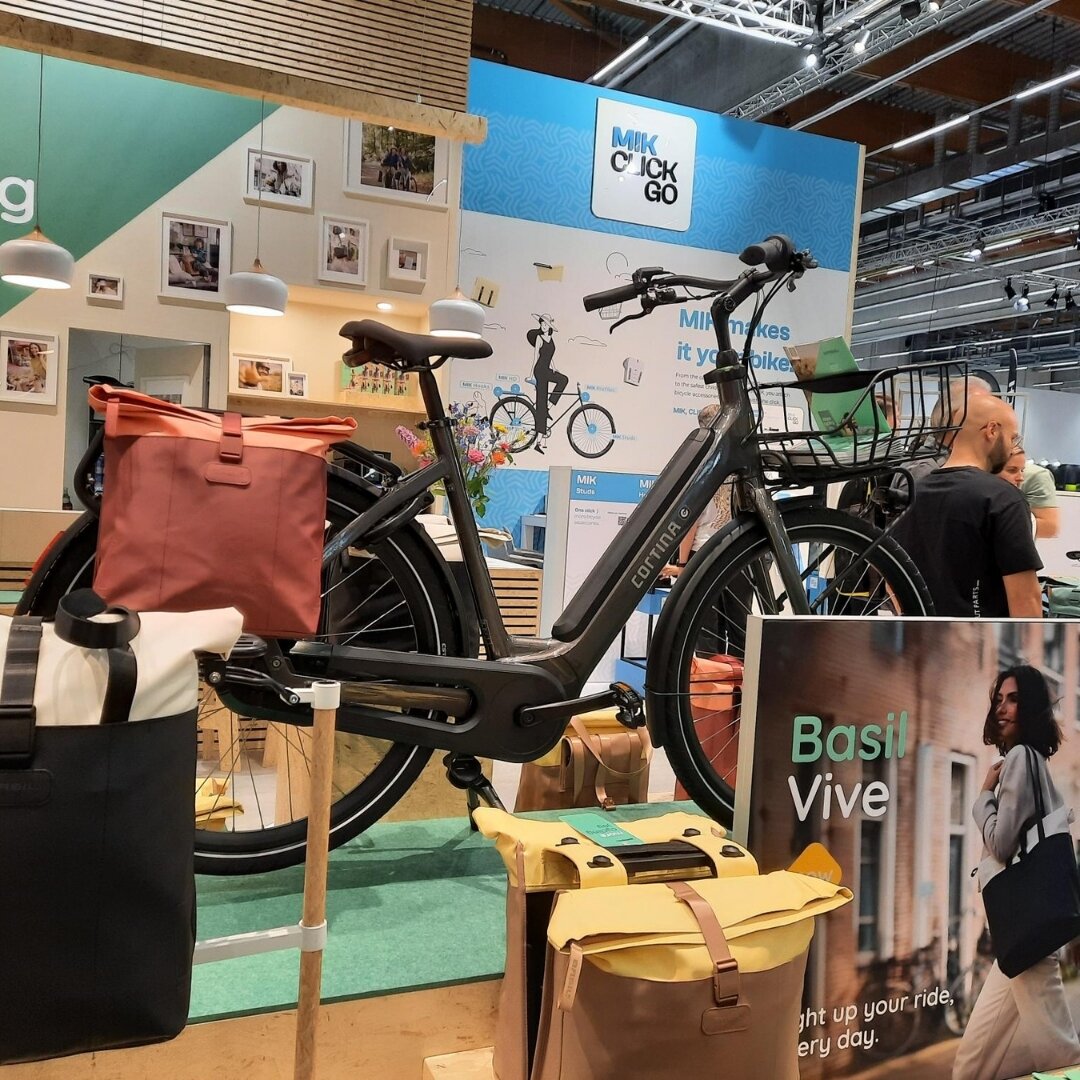
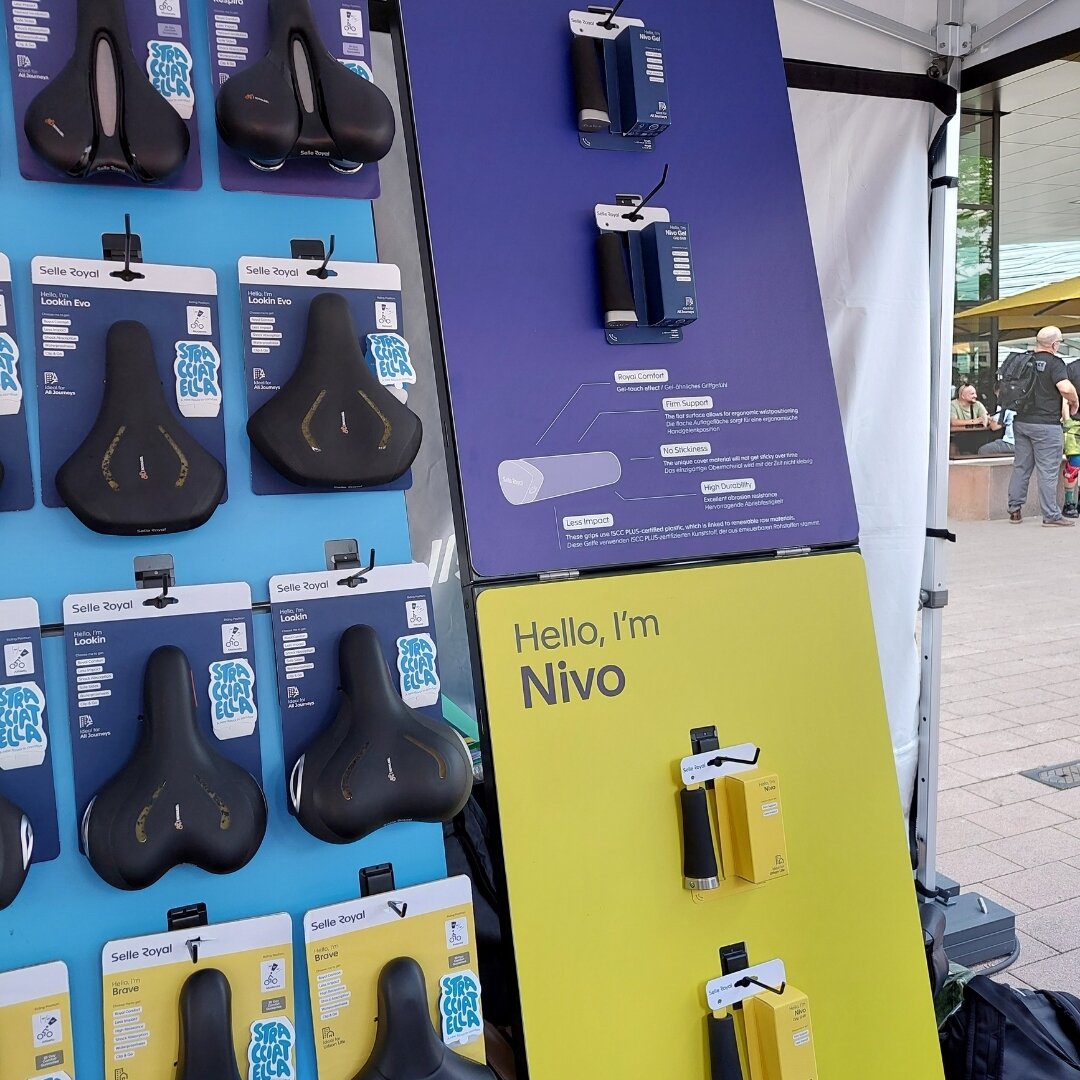
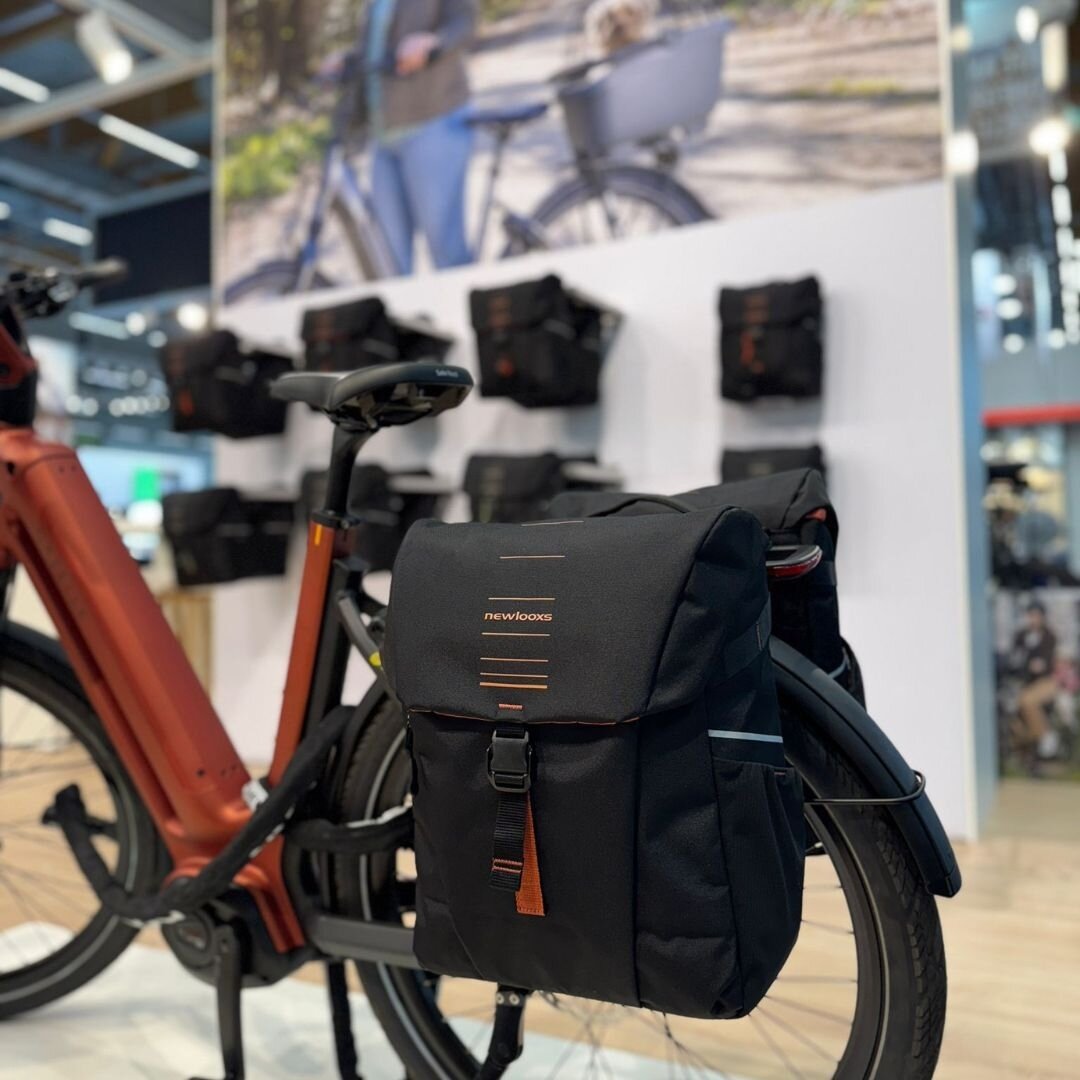
Innovation at Brand and Product Level
There were many exciting new developments. ABUS introduced two new helmets: the ultra-light and aerodynamic Airbreaker 2.0, and the Taipan, specially designed for gravel riders but also relevant for various forms of micromobility. AXA launched the Atlas, a new generation of ring locks that smartly combines safety with user convenience.
Eovolt also made a big announcement: the company will continue under a new name, UTO. Why the change? Because UTO is expanding with its very first non-electric model. The name Eovolt mainly suggested e-bikes, while UTO reflects a broader ambition to reach more people, both with and without electric assistance. The electric version, the UTO PRO20 E-bike (formerly known as Afternoon Pro), won the Eurobike Gold Award in the e-bike category, an important recognition within the micromobility market.
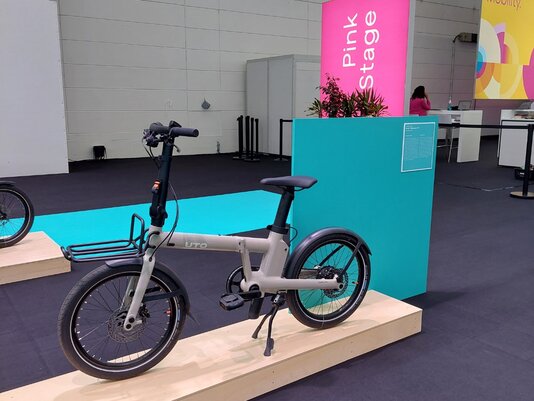
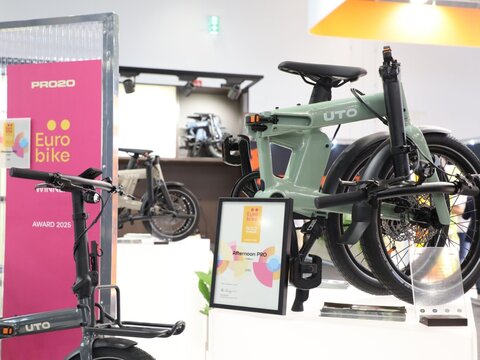
CARGO and lev's on the move
Traditional cargo bikes have long been dominant, but now we are seeing a growing number of longtail solutions. These extended bicycles offer a more flexible option: they are lighter, easier to handle, and suitable for various transport needs. Innovations such as smart trailers also allow a standard bike to be temporarily converted into a longtail, giving users additional cargo capacity with minimal investment.
At the same time, the supply of Light Electric Vehicles is growing rapidly. These compact, electrically powered vehicles are becoming an important part of the micromobility market. They are designed for efficient urban travel, often without a chain and with a drive-by-wire system. Since they are legally considered bicycles, no driving license is required. This makes them attractive to employers and fleet operators who want to involve a broader group of employees in urban delivery and service tasks.
CARGO and lev's on the move
Bicycle Retail Is Visibly Changing
One noticeable trend on the Eurobike 2025 exhibition floor was the changing approach to product presentation. In the past, the focus was often on filling the shelves with as many products as possible. Now, more and more brands are choosing to highlight atmosphere, experience, and a strong brand identity. This shift toward storytelling and brand building matches the changing expectations of consumers within the micromobility sector.
Micromobility is growing, also at Eurobike
That micromobility is no longer a niche becomes clear from a strategic change Eurobike will implement from 2026. The familiar trade fair will focus more on the world of sports and performance cycling, while organizer Fairnamic is launching a new specialized event called mobifuture. This new fair will focus entirely on electric micromobility, with special attention to e-scooters, cargo bikes, microcars, and shared mobility solutions.
The two fairs will continue as separate brands, but will take place at the same time and at the same location in Frankfurt. This creates a clear distinction: Eurobike will highlight sport, performance, high-tech, and cycling culture, while mobifuture will be the central place for urban and sustainable micromobility solutions.
Seizing Opportunities Together
The bicycle industry is accelerating. Innovation, sustainability, and flexibility are no longer trends but essential requirements. At PENDLR, we believe micromobility is the key to sustainable transport in cities and beyond. Whether it is about smart parts and accessories, cargo solutions, or the layout of your product shelves, we are your partner in micromobility.
Together we make daily commutes more flexible, efficient, and green. The opportunities are here, let us seize them together.
Bram van Duinen
Performance Marketeer
Stay up to date
with our newsletter
We make the daily commutes in and around the city more flexible, efficient and green. We are your partner in micromobility.